‘Cold-war mentality’: Chinese defence minister Li Shangfu takes aim at US in first speech
Keynote address warns of intensifying arms race but says US-China conflict would be ‘unbearable disaster’
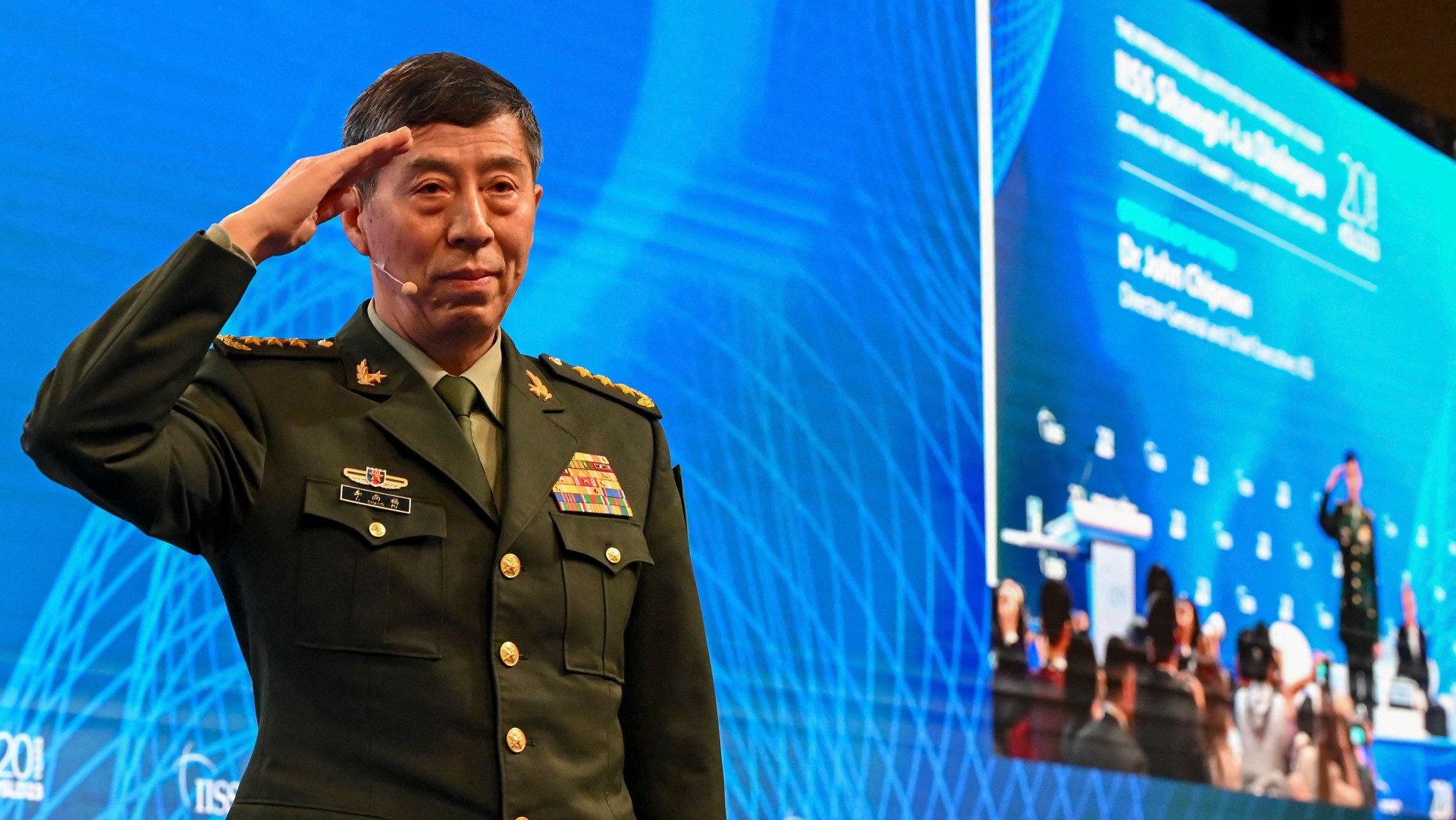
A free daily email with the biggest news stories of the day – and the best features from TheWeek.com
You are now subscribed
Your newsletter sign-up was successful
China’s new defence minister has used his first major speech to take aim at the US for intensifying an arms race in Asia, but warned that a war between the world’s two superpowers would be an “unbearable disaster”.
Delivering the keynote address at the Shangri-La Dialogue security summit in Singapore on Sunday, General Li Shangfu, dressed in full military uniform, accused the US of adopting a “Cold War mentality”, which was “greatly increasing security risks”.
‘Attempting to stir up troubles’
Referencing an incident over the weekend in which US and Canadian ships sailed through the Taiwan Strait and came within 150 metres of a Chinese destroyer, Li criticised “extra-regional countries” for sending warships to the South China Sea “attempting to stir up troubles”. He also vowed to take back Taiwan without “fearing any adversaries, and regardless of the cost”.
The Week
Escape your echo chamber. Get the facts behind the news, plus analysis from multiple perspectives.

Sign up for The Week's Free Newsletters
From our morning news briefing to a weekly Good News Newsletter, get the best of The Week delivered directly to your inbox.
From our morning news briefing to a weekly Good News Newsletter, get the best of The Week delivered directly to your inbox.
Yet he also struck a more conciliatory tone. “China and the US have different systems and are different in many other ways. However, this should not keep the two sides from seeking common ground and common interests to grow bilateral ties and deepen cooperation,” he said.
“It is undeniable that a severe conflict or confrontation between China and the US will be an unbearable disaster for the world.”
The South China Morning Post said that Li, the former head of the People’s Liberation Army’s equipment department, “showed himself to be ‘a tough military diplomat’, with his speech and in his rhetoric when engaging with his foreign counterparts” in what the paper’s Minnie Chan described as a “strong debut”.
‘Cold War mentality’
Li’s claims that “a Cold War mentality is now resurgent, greatly increasing security risks” struck a chord with many experts who view the emergence of a new era of bi-polar competition and alliances with concern.
A free daily email with the biggest news stories of the day – and the best features from TheWeek.com
NPR said the US and China have “both been boosting their military activity and arms build-up in the Asia Pacific region”, with US Defence Secretary Lloyd Austin touting expanded military exercises with partners including Japan, Australia, the Philippines and Indonesia.
“The US is also increasing the sharing of military technology with India, creating interoperability between its military systems with Japan, and is currently building a new fleet of nuclear-powered submarines with Australia,” said the public broadcaster. In response, Li offered to partner militarily with Southeast Asian countries on the basis of “mutual respect”.
Addressing the summit on Saturday, Austin rebuked China for refusing to hold military talks, “leaving the superpowers deadlocked over their differences”, said Asia Financial.
Austin said dialogue “is not a reward, but a necessity”. But “China’s reticence appears partially related to anger about a 2018 decision by the United States to impose sanctions on Li over Chinese military purchases from Russian arms dealers, despite State Department assurances that the measures should not prevent a meeting”, reported The Washington Post.
“It also reflects how far apart the two sides have grown on Taiwan, the most sensitive issue in the bilateral relationship and most dangerous potential military flash point,” added the paper.
Zhou Bo, a retired officer of China’s People’s Liberation Army, told the BBC that the Chinese defence minister’s “moderate” tone signals that talks with his US counterpart are possible, but Washington has to lift sanctions against him first, he said.
While Li’s approach and tone did appear gentler than that of Chinese positions stated at previous summits, agreed Chong Ja Ian, a political scientist at the National University of Singapore, “the content was the same”.
“It was a reflection of the distance between the US and the PRC [People’s Republic of China], which also suggests that any hope that there will be some resolution is naive. US, PRC competition is here to stay,” he said.
‘A potential thaw’
The Washington Post said the “tense exchange” in Singapore comes weeks after US President Joe Biden spoke about a potential “thaw” in US-China relations during the G7 summit in Japan.
“Beijing, too, has hinted at a willingness to move past the fallout from the US military’s shoot-down of a Chinese surveillance balloon in February,” said the paper, “but recent military incidents in the South China Sea and the Taiwan Strait have made diplomatic progress difficult.”
Li said China and the US should seek “common ground” in order to avoid a confrontation that would be an “unbearable disaster for the world”. But, said NPR, “delegations from each side presented drastically different interpretations of how to mend bilateral relations”.
The US has stepped up its support for Taiwan in recent months in the form of congressional visits and weapons sales to the island nation China considers its own. Near-misses such as at the weekend “are part of why the United States wants high-level dialogue with China to restart”, said the Washington Post.
And despite what the BBC called a “diplomatic spat” at the summit in Singapore, a top US State Department official has arrived in Beijing for a week of wide-ranging talks in a sign the two sides are at least prepared to engage with one another.
If full rapprochement with the US still seems a distant dream, Europe has emerged as a “key interlocutor” with Beijing, Politico reported.
While refusing to meet his US counterpart, Li held bilateral meetings with UK Defence Secretary Ben Wallace, his German counterpart Boris Pistorius, and EU foreign policy chief Josep Borrell, who described the talks as “constructive”.
-
 How Democrats are turning DOJ lemons into partisan lemonade
How Democrats are turning DOJ lemons into partisan lemonadeTODAY’S BIG QUESTION As the Trump administration continues to try — and fail — at indicting its political enemies, Democratic lawmakers have begun seizing the moment for themselves
-
 ICE’s new targets post-Minnesota retreat
ICE’s new targets post-Minnesota retreatIn the Spotlight Several cities are reportedly on ICE’s list for immigration crackdowns
-
 ‘Those rights don’t exist to protect criminals’
‘Those rights don’t exist to protect criminals’Instant Opinion Opinion, comment and editorials of the day
-
 Taiwan eyes Iron Dome-like defence against China
Taiwan eyes Iron Dome-like defence against ChinaUnder the Radar President announces historic increase in defence spending as Chinese aggression towards autonomous island escalates
-
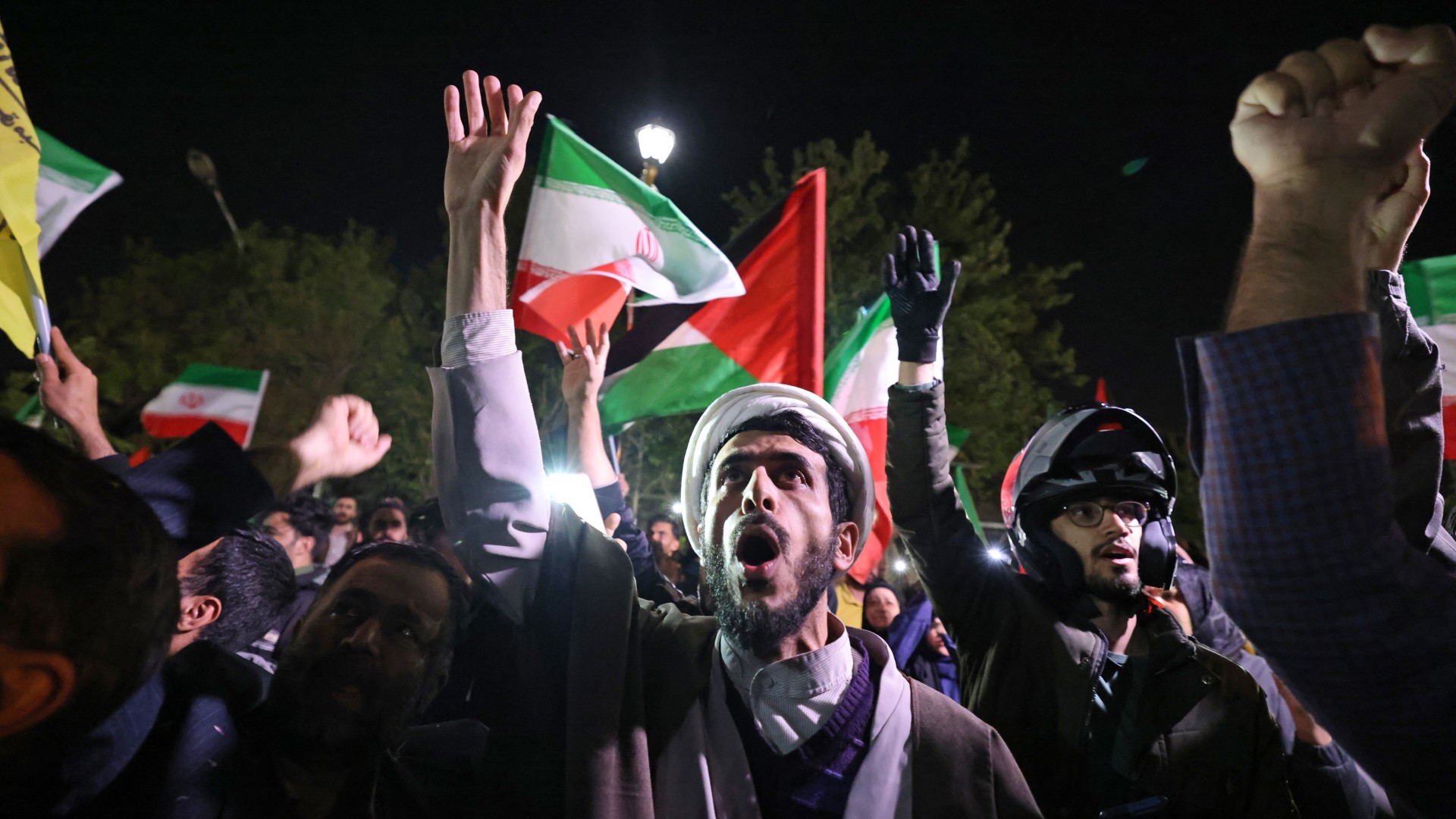 Will Iran's attack on Israel backfire?
Will Iran's attack on Israel backfire?Today's Big Question The unprecedented targeting of Israel could be a 'godsend' for Netanyahu as the limits of Tehran's military power are exposed
-
 Will Iran risk all-out war with Israel?
Will Iran risk all-out war with Israel?Today's Big Question Tehran has not wanted to be directly involved in the Middle East conflict so far. But that could be about to change
-
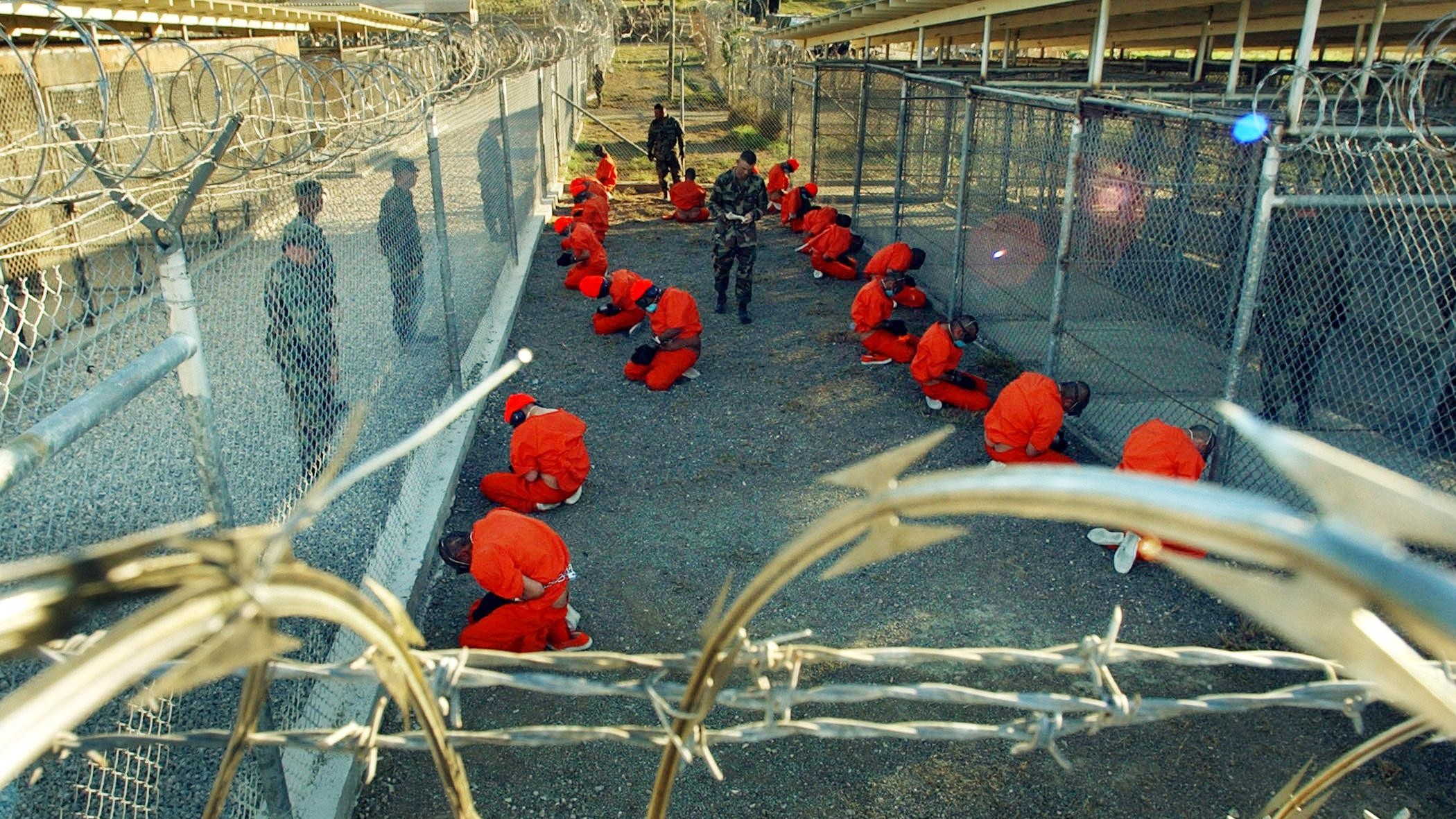 A history of Guantánamo Bay
A history of Guantánamo BayThe Explainer War of Terror's 'symbol of torture, rendition and indefinite detention' is subject of new Serial podcast series
-
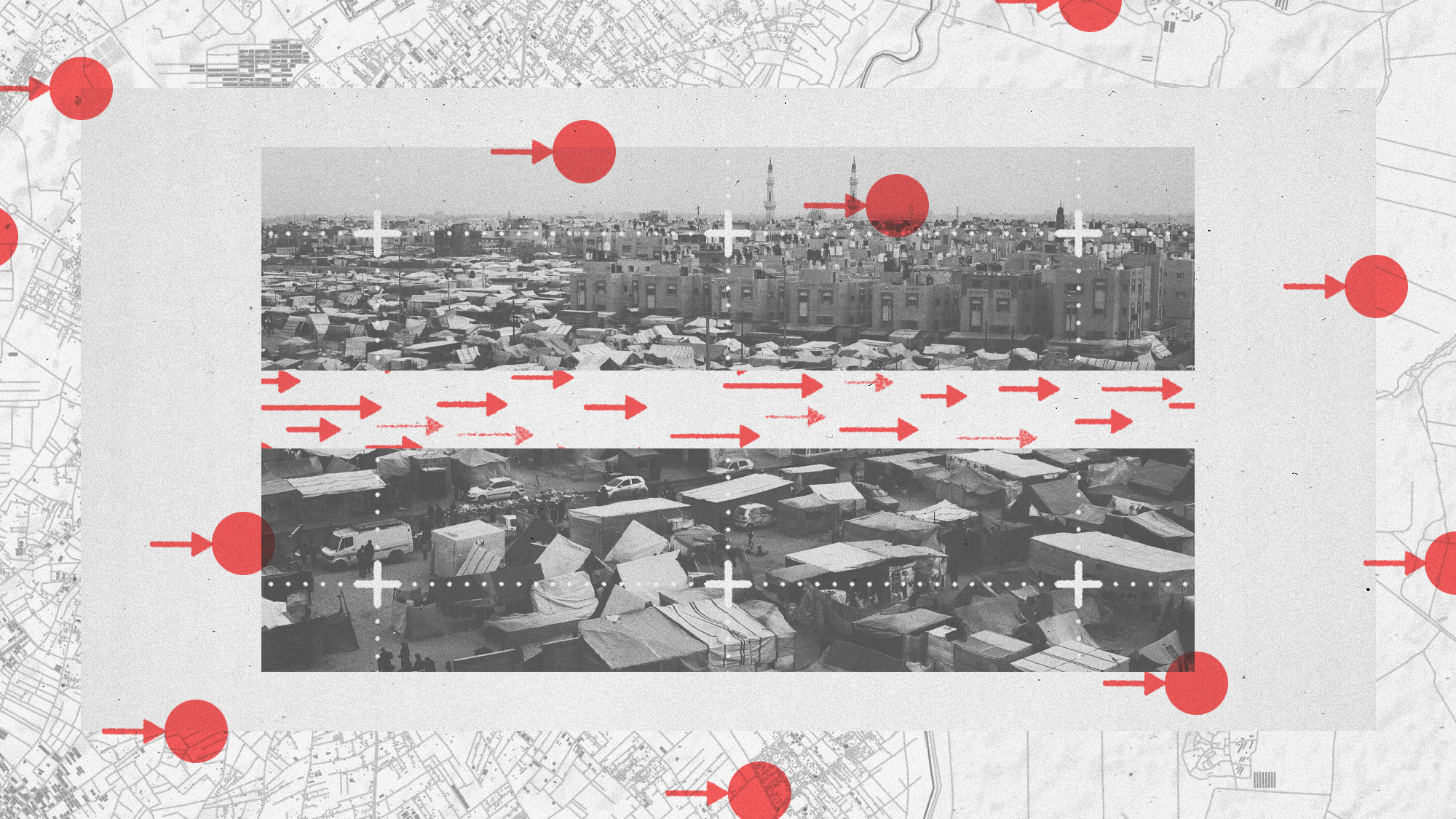 'Humanitarian islands': how will Israel's plan for Rafah civilians work?
'Humanitarian islands': how will Israel's plan for Rafah civilians work?Today's Big Question Designated zones in central Gaza to provide temporary housing, food and water for more than a million displaced Palestinians
-
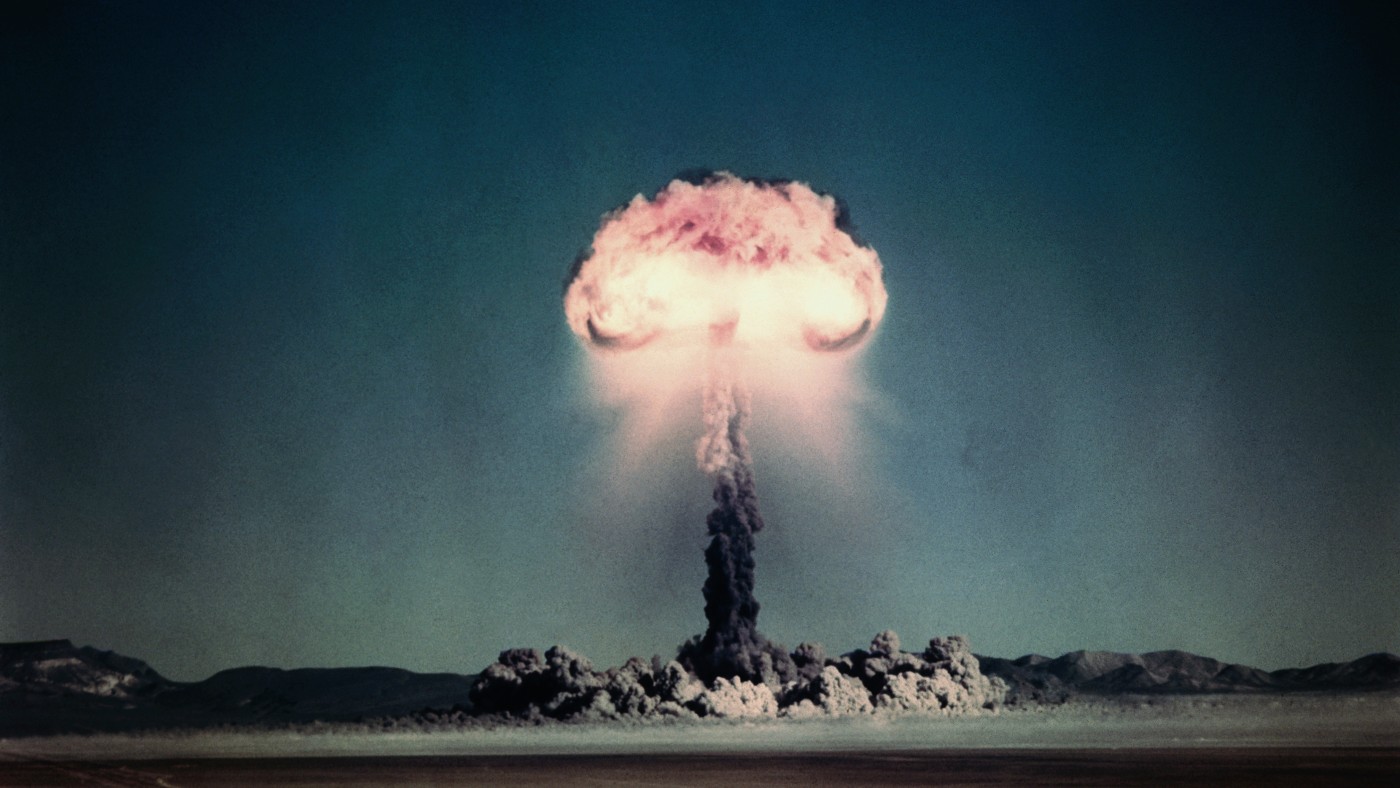 How likely is an accidental nuclear incident?
How likely is an accidental nuclear incident?The Explainer Artificial intelligence, secret enemy tests or false alarms could trigger inadvertent launch or detonation
-
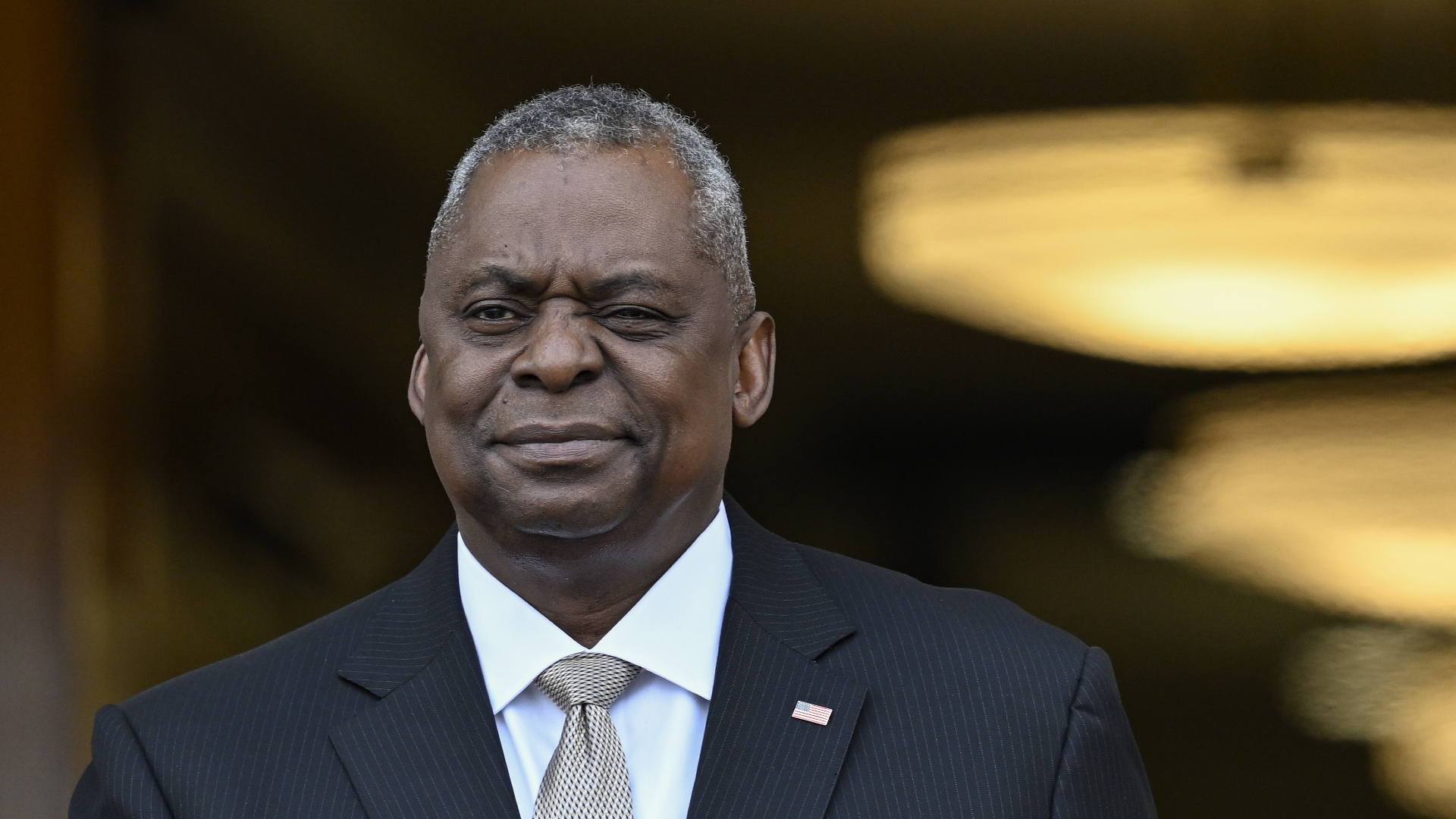 Pentagon struggles to explain Defense Secretary Lloyd Austin's secret hospitalization
Pentagon struggles to explain Defense Secretary Lloyd Austin's secret hospitalizationSpeed Read The intensely private Pentagon chief kept even President Joe Biden in the dark about his illness for 3 days
-
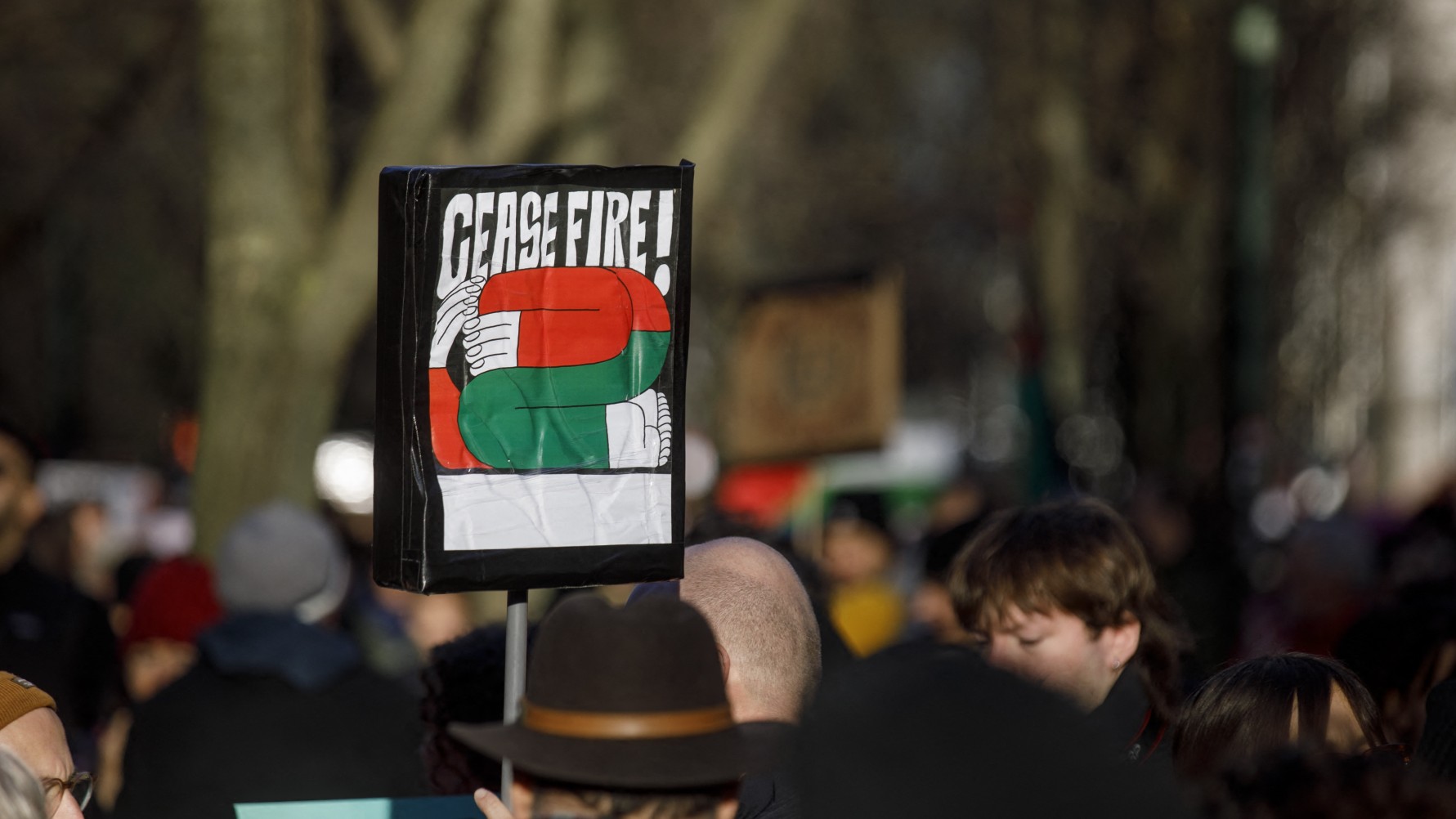 Israel-Hamas: what do both sides need in order to agree a sustainable ceasefire?
Israel-Hamas: what do both sides need in order to agree a sustainable ceasefire?Today's Big Question Israel and Hamas 'open' to renewed ceasefire and hostage release, as pressure mounts on Benjamin Netanyahu at home and abroad